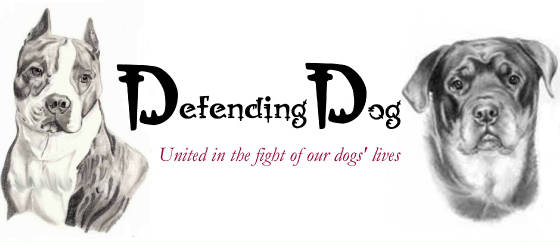Perhaps you’ve heard the word “guardian” used a lot lately with respect to pet ownership. There are many groups pushing “pet guardian” legislation either in lieu of or to replace the traditional term “pet owner.” Upon first glance, it appears there is little difference between the two. However, there are very distinct differences between these two terms, and the impact a change in terminology can have on your rights is significant.
To have or possess as property; To have control over.
Guardian
A person who is entrusted by law with the care of a person or property
Understanding the Push for “Guardian” Language
Supporters of guardianship laws claim that ‘owners’ consider pets as easily dispensable, but that ‘guardians’ will treat animals with more care and concern. Alan Eisenberg of Hope Safehouse states that changing the laws is a “symbolic gesture” designed to get people to treat their pets better. However, there is no evidence to support either assertion.
In fact, the American Veterinary Medical Association issued a position statement with respect to the change in terminology:
The American Veterinary Medical Association promotes the optimal health and welfare of animals. Further, the AVMA recognizes the role of responsible owners in providing for their animals’ care. Any change in terminology describing the relationship between animals and owners, including “guardian,” does not strengthen this relationship and may, in fact, harm it. Such changes in terminology may adversely affect the ability of society to obtain and deliver animal services and, ultimately, result in animal suffering.
Moreover, it is unrealistic to believe that changing the language will produce a change in attitudes and behaviors. A callous, uncaring pet owner is going to be the same callous, uncaring pet guardian.
Legal Implications of Terminology
Unlike pet owners, pet guardians do not own the property that is the subject of the guardianship. At best, a guardian has a limited or temporary possession of the property. The guardianship right is bestowed by the government and can be arbitrarily revoked, meaning your pet can be taken from you without any rhyme or reason.
All property owners, however, enjoy rights, powers, privileges and immunities in the particular thing or things they own. Placerville Fruit Growers’ Association v. Irving. Animals are ethically and legally regarded as property and, as such, our rights as property owners are protected under the Fourteenth Amendment of the United States Constitution.
For owners of pets targeted by BSL, the ability to maintain our rights as property owners is of the utmost importance.
Constitutional Protections for Pet Owners
The Fourteenth Amendment guarantees that no state shall deprive any person of their property without due process of law, nor deny any person within its jurisdiction equal protection of the law.
Procedural Due Process is based upon the concept of “fundamental fairness.” Among the rights ensured is the right of individuals to be heard with respect to proceedings against them. The Fourteenth Amendment of the U.S. Constitution guarantees that no person shall be deprived of property arbitrarily and without the opportunity to effect the result.
Equal Protection provides that no state shall deny to any person equal protection of the law – meaning state governments cannot deprive citizens of rights guaranteed by federal law, i.e., the Constitution.
Therefore, if federal law protects your property, the state cannot arbitrarily violate that protection.
Why This Matters for Fighting BSL
In essence, removing the property rights of dog owners jeopardizes our dogs by allowing the government to deprive us of our dogs arbitrarily – without rhyme or reason. This is critically important for owners of pit bulls, rottweilers, dobermans… any and all dogs targeted by breed specific laws.
One of the most important arguments we make with respect to BSL is that breed specific laws violate our right to due process. If we do not own our dogs, we lose the valuable right to argue this protection under the United States Constitution.
While the term “guardian” may generate warm and fuzzy feelings to pet advocates, there is little beyond this intentional misguided softness that can be considered positive. The term “guardian” is based on the desire of certain animal rights groups to eliminate pet ownership. Groups such as PeTA have long advocated that pet ownership is cruel and abusive and that no animal should be kept for our benefit.
I am not going to lecture you in Animal Rights vs. Animal Welfare… that is another article all together. However, I will urge you to research the groups who are pushing “pet guardian” legislation and make up your own mind about their reasons behind it.
The one and only thing I want anyone who reads this to take away with them is simple — if we give up our property rights to our dogs, we will lose the battle against BSL. It doesn’t get any more basic than that.
Alan Eisenberg stated it best in his argument to support guardianship legislation when he stated, “It, in essence, says dogs are not our property. We do not own them.”
This is so much more than a symbolic gesture, and that is precisely the reason why we must fight pet guardianship legislation.
Jodi Preis
